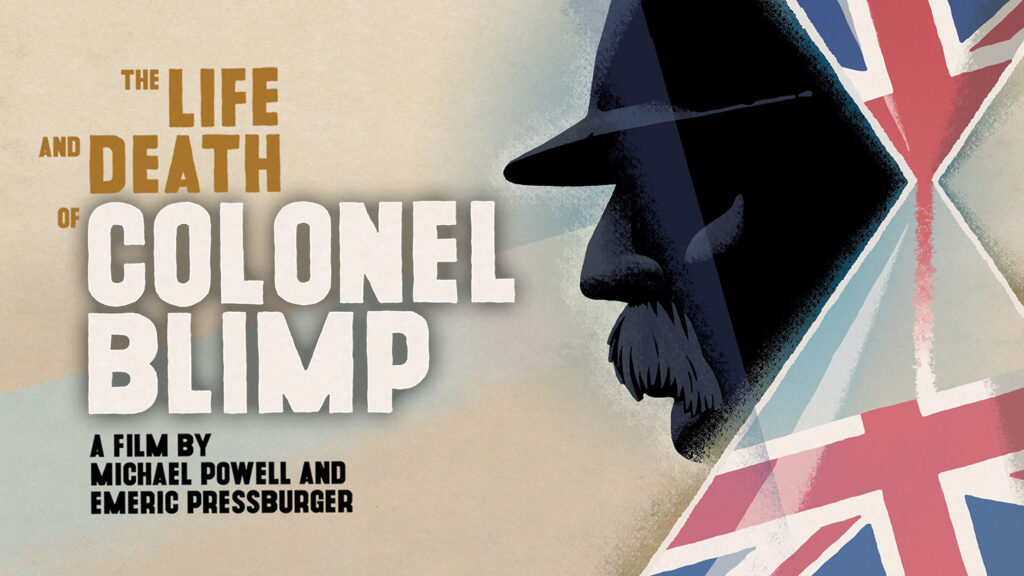Movie-going friends often hear me complain about how so many movies these days run close to three hours. I think it’s to justify the increasing price of tickets.
Avatar: The Way of Water and superhero movies, I’m thinking of you.
Ninety minutes to two hours is the sweet spot. It keeps the storytelling taut but leaves time to delve into character and background.
That said, there are certainly movies that can break that notion without any padding or filler. We’ve watched several in our film club: Red Beard and Andrei Rublev jump to mind right off.
Add to those The Life and Death of Colonel Blimp, this week’s pick.
Without going into a full-blown review, I just want to touch on a few thoughts that came to mind after watching the movie.
Filmmakers Michael Powell and Emeric Pressburger keep the 163-minute movie marching along despite much of the action taking place off-screen, such as a duel, much of either world war, and key deaths (but not of the titular Blimp). They cleverly show British military officer Clive Wynne-Candy’s response to demobilization with hunting trophies appearing on his den wall accented by gunshots. And, later, Candy’s emptiness after his wife’s death is revealed as a hand flips through an album filled with photographs of their life together, which then turns to blank, black pages.
Exceptional makeup and acting age Roger Livesey, who plays Candy, through the character’s 40-year military career. I’m very surprised Livesey never achieved real stardom after this role. (He also starred in I Know Where I’m Going!, which we watched early last year before I started this blog, and which was also made by Powell and Pressburger.)
Candy never wavers from his rigid adherence to old-fashioned ideals, even when confronted by change around him. Powell and Pressburger — aided by Livesey’s acting — poke at those stodgy British values without poking fun at them. Livesey is able to portray Candy as both admirable and flawed.
There’s no real Colonel Blimp in the movie, though Spencer Trevor is credited as playing “Period Blimp,” an older British officer in a brief scene. But early on, when Candy is captured by an upstart junior officer while napping in a Turkish bath in London, British moviegoers in 1943 would have recognized the blustering Major-General Candy in the scene as the Colonel Blimp character from the single-panel comics of the period by David Low: a blustering, bald, red-faced, mustachioed former military officer wrapped in a towel. Though named after the comic, the movie has humor but is never a comedy (well, maybe satire).
Anton Walbrook, who plays Candy’s oldest friend, German officer Theo Kretschmar-Schuldorff, delivers a heartfelt speech on truth as he seeks asylum in Great Britain. During the lengthy shot, the camera starts wide and moves in on Theo’s face, close enough to see the tears welling in his eyes, then pulls back. It’s powerful.
It was another clever idea to cast Deborah Kerr in three roles: Edith Hunter, who weds Theo and remains Candy’s unrequited love; Candy’s wife, Barbara Wynne, who first catches his eye during World War I because of her resemblance to Edith; and his driver during World War II, Angela Cannon, who he subconsciously selects because, again, he’s reminded of Edith. Kerr does an excellent job of differentiating the three characters without resorting to stereotyping any of them.
I’ve read that the British government — and in particular Prime Minister Winston Churchill — was against Powell and Pressburger making the film, which it thought poked fun at the military establishment — and in particular Churchill — when the country was at the height of World War II. It made me wonder if the scene where Candy’s speech on BBC radio is canceled was a dig at the government for that pressure.
Despite the concern, The Life and Death of Colonel Blimp certainly comes across as supporting the war against the Nazis, even if it doesn’t paint all Germans as the enemy. Theo is sympathetically depicted as an average German caught between a rock and a hard place.
It’s interesting to watch the film 80 years after it was released. We still struggle with fighting honorably or stooping to the tactics of the opposition.
